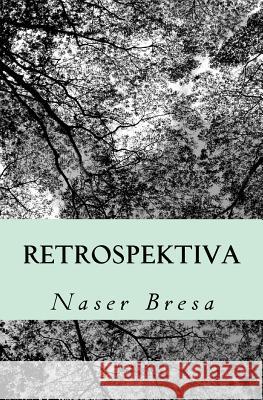Retrospektiva » książka
Retrospektiva
ISBN-13: 9781530540433 / Albański / Miękka / 2016 / 220 str.
As the new but small country of Kosova goes through daily struggles, it is becoming clear to many of its people that their country needs some drastic changes which will lead its citizens forward into the 21st century. With its post-war economy in shatters, and corruption on the rise, the new country's future often seems bleak in the eyes of the younger generations who try to take matters into their hands by often abandoning their homeland and their families altogether. These trials, however, have also produced great minds who have the will and passion for change. One such person who rose out of such dark circumstances, as seen in the chapters of this book, is Professor Naser Bresa. The author of this book understands the complexity of the afflictions facing his country, and it is people like him who have the potential to divert such trials simply because, as this work testifies, he has seen and lived it all before, during and after the war in Kosova. In one instance, as mentioned in the book, Mr. Bresa and his university colleagues were forced to empty their bus and line up in front of armed Serbian police officers, and then were interrogated for the enjoyment of those officers, not because these students had done anything wrong, but because they were of a different nationality than that of the officers. The officers ordered that these medical students produce their Yugoslavian IDs; this was often the excuse, of course, because these officers only pulled over the Albanians, and if they did not have the papers the officers demanded, then this became a reason for the regime to interrogate their subjects to the point of torture and imprisonment which was often the case. As it is seen in these chapters, life was not a pleasant one for an Albanian student trying to get an education in a place where the education of a Kosovar Albanian was seen as a threat to the regime (and this is why all the Albanian-run schools were forcibly closed in the 90s by the same regime). Mr. Bresa, however, did not let any of this pressure and intimidation stop him from pursuing his life-goals. In one instance, for example, he describes how the regime harassed him and his fellow students in their dorm for the simple reason that the Serbian students next door did not seem to like their Albanian dorm mates. Both sides were attending the University of Prishtina, but the Serbian students had decided to call the police and had asked them to raid the dorm rooms of their Albanian counterparts; an Albanian student, however, even in times of desperate need did not have the privilege of calling the police on the Serbs. This is a story of great challenges and struggles, but it is also a story of determination and success. The story is one of challenges because in these pages, in great detail, the author shows how difficult life was growing up under the regime of former Yugoslavia, especially regarding his endeavors in his pursuit of education, but also of survival during times of conflict and war as was the case in the late 1990s when Bresa and his family had to flee for their lives because of the brutal persecutions of the Serbian regime at the time. This is a story of success because in the early chapters of the book we see Mr. Bresa as a child in sorrow for his lost school backpack, and also growing up in an impoverished community to later becoming a great teacher, writer, leader, and activist, among other things, and uniting like-minded people for a better Kosova, and later running for the country's highest positions of leadership. Only people like Mr. Bresa can overcome such challenges and rise above them triumphant, and this book shows how he did it. I hope you take the time to both enjoy this powerful story, and also think about how you can join meaningful causes with people like Mr. Bresa for a better Kosova, and essentially for a better future for society at large.
Zawartość książki może nie spełniać oczekiwań – reklamacje nie obejmują treści, która mogła nie być redakcyjnie ani merytorycznie opracowana.











